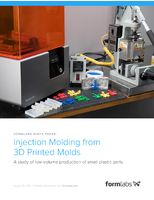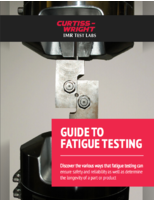IPC submits comments reviewing RoHS Directive.
Share:
Press Release Summary:
The Government Relations and Environment, Health, and Safety Committees of IPC - Association Connecting Electronics Industries® have submitted comments to the European Commission reviewing the RoHS Directive. IPC advocated a full life cycle assessment of proposed substitutes before any changes take effect. It also encouraged the Commission to consider that any further substance restrictions be regulated under the current REACH Directive.
Original Press Release:
RoHS Under Review: IPC Urges Commission to Aim for Science-Based Regulations with Thorough Consideration of Life Cycle Impacts
BANNOCKBURN, Ill., USA, January 21, 2008 - The Government Relations and Environment, Health and Safety Committees of IPC - Association Connecting Electronics Industries® have submitted comments to the European Commission reviewing the Restriction of Hazardous Substances (RoHS) Directive.
With the threat of an expansion in scope of RoHS including additional substance restrictions, the elimination of existing technology exemptions, and the inclusion of more electronics equipment, IPC urged the Commission for no changes at this time and that any proposed changes be held until the technical feasibility of their implementation can be reviewed thoroughly. "Why compound the problem by expanding the scope of RoHS, when there are unresolved adverse reliability interconnect issues and greater adverse environmental, global warming and resource depletion impacts with the lead-free alternatives?" asked Lee Wilmot, director, Environmental, Health & Safety for TTM Technologies, Inc., and chairman of the IPC Environment, Health & Safety Committee.
Dan Feinberg, president of Fein-Line Associates, and chairman of the IPC Government Relations Committee agrees, "The industry is still dealing with the reliability effects of the lead free provisions of RoHS. We're urging the Commission to allow for a complete understanding of the effects of what has already been regulated, as well as new proposed regulations, before they are enacted into law. We also encourage the members of our industry to respond to the Commission's invitation for comment and send their own specific concerns."
Throughout its comments, IPC advocated a full life cycle assessment - a comprehensive evaluation of the design, use and end-of-life impacts - of proposed substitutes before any changes take effect, "There should be clear and compelling evidence that potential substitutes are available, are reliable over the long term and are preferable from a life-cycle perspective."
From an administrative and reporting perspective, IPC also encouraged the Commission to consider that any further substance restrictions be regulated under the current REACH Directive to avoid unnecessary confusion and, "to prevent overlapping and duplicative chemical regulations."
A copy of IPC's full comments is available (as a PDF file) at http://www.ipc.org/commentRoHS.
The European Parliament and the Council on the Restriction of the Use of Certain Hazardous Substances in Electrical and Electronic Equipment is accepting comments until February 13, 2008. The Commission intends to present their review in 2008.
IPC encourages companies in the electronics interconnect industry to join its efforts and submit their own comments and concerns. Information on the Commission's invitation is available at http://ec.europa.eu/environment/waste/weee/pdf/2nd_consultation.pdf.
About IPC
IPC (www.ipc.org) is a global trade association based in Bannockburn, Ill., dedicated to the competitive excellence and financial success of its 2,500 member companies which represent all facets of the electronics interconnect industry, including design, printed circuit board manufacturing and electronics assembly. As a member-driven organization and leading source for industry standards, training, market research and public policy advocacy, IPC supports programs to meet the needs of an estimated $1.5 trillion global electronics industry. IPC maintains additional offices in Taos, N.M.; Arlington, Va.; Garden Grove, Calif.; Stockholm, Sweden; and Shanghai, China.




